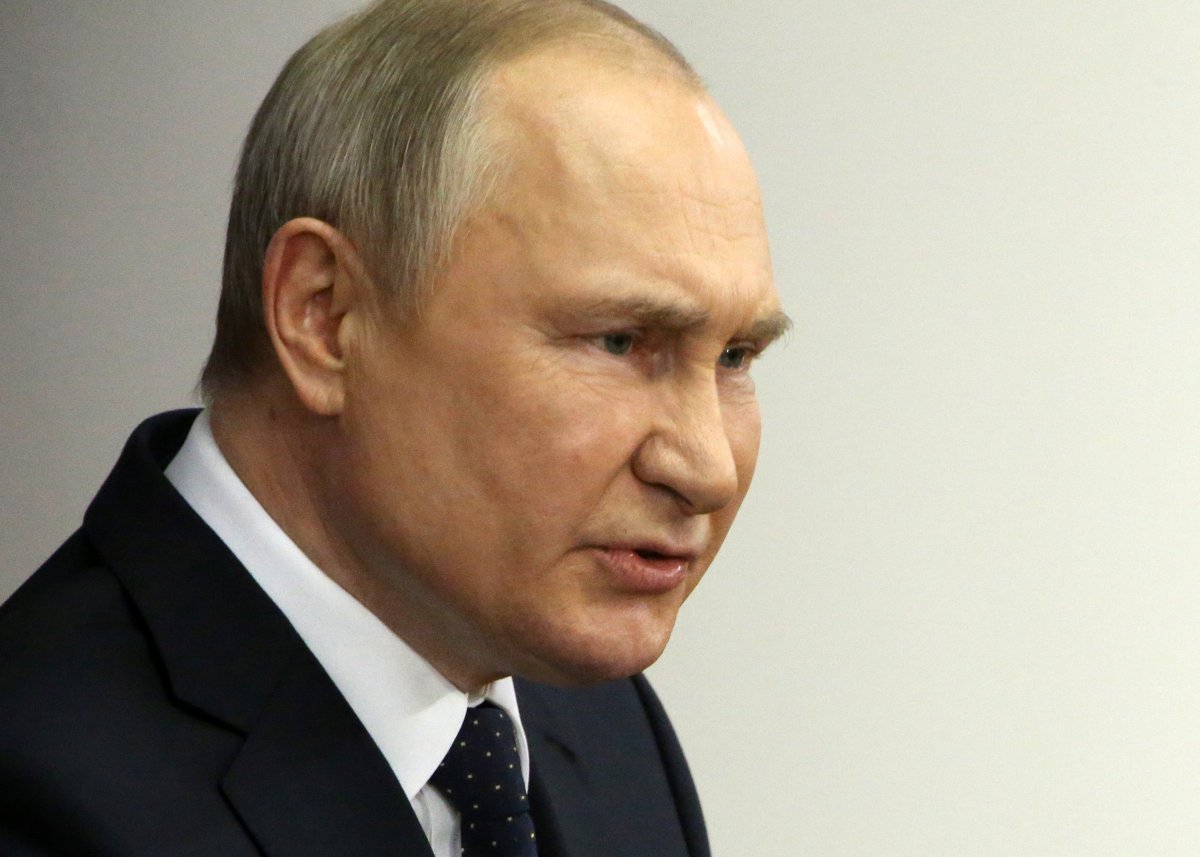Russian President Vladimir Putin may be seeing serious dissension in his military's ranks, if reports about officer insubordination and low troop morale in Ukraine are any indication.
On Monday, a senior official from the U.S. Defense Department said the agency had received anecdotal reports about officers in Russia's military refusing to follow orders in Ukraine. The statement came after numerous reports have surfaced since the beginning of the war about Russia's forces suffering from low morale.
The Pentagon official said the reports, which could not be independently confirmed, concerned officers in midgrade positions, including some at the battalion level. The claim about officers disobeying orders followed numerous reports like the one from a March 1 New York Times story that cited a Pentagon official who said entire Russian units had laid down their weapons rather than fight Ukraine's forces. Some Russian troops had even sabotaged their own vehicles, according to the official. More recently, the Ukrainian government said last month it had learned of Russian troops who had refused to fight.
"There are good reasons for low morale on the Russian side. The war isn't going well. Its purpose is unclear, and fighting a war against a neighbor—with whom it's easy to communicate—is psychologically burdensome to soldiers," said Michael Kimmage, a Catholic University history professor and former member of the secretary's policy planning staff at the State Department.

While Kimmage told Newsweek he has not seen any evidence to suggest a widespread rebellion among Putin's troops, he noted it is "possible that there are mutinous movements within the Russian army and not all of them on the lower levels."
Monday's comments from the Pentagon regarding officers not following orders came after The New York Times reported on May 4 that the U.S. intelligence community had provided information to Ukraine that helped it find and kill Russian generals. The Pentagon later denied the U.S. had provided Ukraine with any intelligence regarding the location of Russian military officers.
Defense Intelligence Agency Director Scott Berrier said at a Senate hearing on Tuesday that an estimated eight to 10 Russian generals have been killed since Russia's attacks began in late February. Berrier, a lieutenant general, attributed the large number of deaths among Russian officers to the military's lack of NCOs, or noncommissioned officers, which results in higher-ranking military leaders being forced to the dangerous front lines.
Lawrence Reardon, an associate professor of political science at the University of New Hampshire, told Newsweek that these sorts of realities in the war could lead to dissent among both officers and soldiers.
"I am not surprised at the stories depicting Russian soldiers and even midlevel officers refusing to follow orders, as they are facing a different form or warfare, where the soldiers not only worry about land mines but unseen, silent drones flying overhead launching missiles and dropping grenades on Russian armor and Russian generals," Reardon said.
He added that the majority of soldiers in Ukraine "are conscripts from the Russian heartland who are dealing with old or defective equipment, lack the technological expertise" to counter the sophisticated Western arms going to Ukraine. Like Berrier, Reardon cited Russia's lack of noncommissioned officers as a problem, saying such leaders could help "keep the conscripts obeying their orders."
"Insubordination and low troop morale are things that happen in any war," Yuri Zhukov, an associate professor at the University of Michigan, said. "My own sense is that Russia almost certainly has a more serious morale problem than the Ukrainians do, and they are adapting to try to keep these cases contained."
He added, "In wartime, each side has an incentive to publicly minimize their own losses and inflate the losses of their opponent, including cases of soldiers surrendering, deserting and disobeying orders."
Northwestern University political science professor William Reno said he also feels statements from U.S. and European officials about Russia's low morale and officer dissent are being made, in part, as a strategic move.
"No doubt there are instances of insubordination," Reno said. "U.S. agencies pick up all sorts of Russian battlefield communications and observe movements on the ground, so I'd classify the Department of Defense statement as a 'not false' statement."
Reno also said that while "Russia's military consistently underperforms," such statements "play to concerns among some Russians, members of the elite and otherwise, that their system is very poor at correcting course."
"Escalation and the nuclear shadow are real concerns in this context, given Moscow's very poor hand at this point," he said. "That also means the endgame from a NATO perspective would involve Russia's political system crumpling from within."
Newsweek reached out to Russia's Defense Ministry for comment.
Uncommon Knowledge
Newsweek is committed to challenging conventional wisdom and finding connections in the search for common ground.
Newsweek is committed to challenging conventional wisdom and finding connections in the search for common ground.
About the writer
Jon Jackson is an Associate Editor at Newsweek based in New York. His focus is on reporting on the Ukraine ... Read more
To read how Newsweek uses AI as a newsroom tool, Click here.








